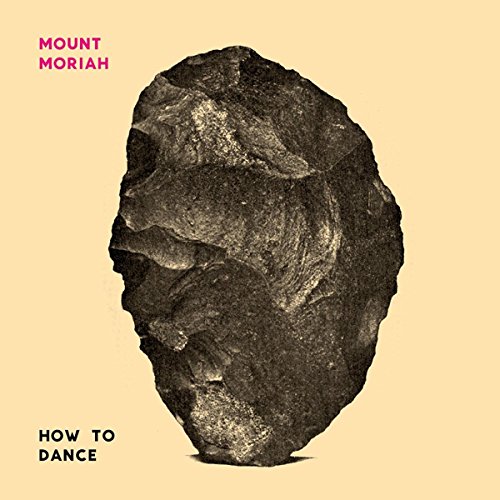
Mount Moriah
How to Dance
Release Date: Feb 26, 2016
Genre(s): Pop/Rock
Record label: Merge
Music Critic Score
How the Music Critic Score works
Buy How to Dance from Amazon
Album Review: How to Dance by Mount Moriah
Very Good, Based on 7 Critics
Based on rating 8/10
If Heather McEntire were a woman who lacked artistic principles, she'd move to Nashville, land a record deal, and likely become rich and famous. McEntire has one of the clearest and most expressive voices in indie rock, sounding like a young Dolly Parton with a tougher attitude but just as much talent. McEntire could be a star if she were willing to let someone else call the shots.
Based on rating 8/10
Mount Moriah’s latest is an odd and beautiful puzzle of an album. How to Dance is hardly an odd title for a record, except that the phrase sits there on the cover in clean, all-caps lettering next to an ancient stone hand axe. The deliberate counterpoint of promise meeting immovable stone becomes all the more complex when listening to Heather McEntire’s lyrics of spiritual yearning.
Based on rating 7.0/10
You could be forgiven for assuming that Heather McEntire was moonlighting on Mount Moriah’s first album. Before her foray into country music, the singer had led the Chapel Hill band Bellafea through two distinct iterations, first as a quiet/loud indie duo then as a snarling punk trio, and Mount Moriah seemed like the latest pit stop for a restless songwriter who hadn’t fully settled on a vision yet. That the band paired her with guitarist Jenks Miller, of the form-breaking metal project Horseback, only furthered the impression that this was a side project.
Based on rating 3/5
How to Dance, Mount Moriah says, is an attempt to broaden the band’s horizons beyond their warm, well-honed alt-country, progressing toward “the cosmic light.” The album is the Durham, NC band’s third, and its first track feels crisply Southern, a song driven of slow, keening guitar and shuffling drums. There are whispers of Duane Allman and the falling of a Southern dusk, as the sun fades and the humid air sinks into the soil. It’s the sound of sweet release, of a heat-choked world loosening its grip.
Opinion: Excellent
Mount Moriah is ostensibly a trio—singer Heather McEntire, guitarist Jenks Miller, and bassist Casey Toll. Although each song on the band’s third album How To Dance also features drums, and at least one other instrument, they’re all ultimately reliant on the rhythmic interplay of one voice, one bass, and one guitar. How To Dance’s 10 tracks stay within a very narrow range, too: neither fast nor slow, neither noisy nor hushed.
Opinion: Excellent
With their third album, North Carolina trio Mount Moriah contribute to the trend in country and Americana music of mixing traditional instrumentation with cosmic mystical themes beyond old-time religion. But whereas someone like space cowboy du jour Sturgill Simpson hasn't yet gone beyond drug trip explorations, Mount Moriah co-leaders Heather McEntire and Jenks Miller draw from an immense well of material that includes Greek mythology and astrology (Cardinal Cross), palmistry (Calvander) and spirits both figurative (Baby Blue) and literal (the ghost towns of Higher Mind). McEntire – a queer woman who grew up Southern Baptist – also pulls from personal experience, celebrating hard-won self-confidence and acceptance in the triumphant Chiron (God In The Brier), chanting "Light came knocking, knocking on my door / and I got no need for you no more!" Her gift for harnessing mythological and spiritual power lifts How To Dance above its peers with its sheer sense of otherness, and the refreshing perspective it adds to the roots genre.
Opinion: Excellent
Mount Moriah — How to Dance (Merge)In How to Dance, Mount Moriah hits its stride as a band with real chemistry and greater than the sum of its already formidable parts. If there was any sense that this was only a side project for guitarist Jenks Miller and longtime best friend Heather McEntire, all band members come into their own here with a heightened sense of unity and confidence on this seamless blend of new southern music and a soul backbone that practically sounds like a new genre. Miller’s own post-rock credentials have been solidified over a series of recordings as Horseback, from the blackened doom of Half Blood, his experimental collaborations (again as Horseback) with Pyramids and Locrian, and his seminal 2014 swamp travelogue Piedmont Apocrypha, a charred blues masterpiece.
'How to Dance'
is available now

